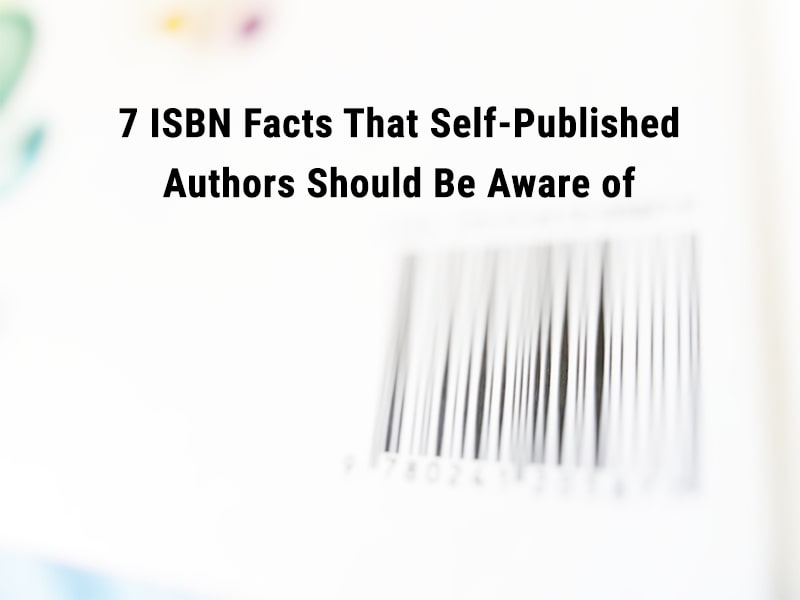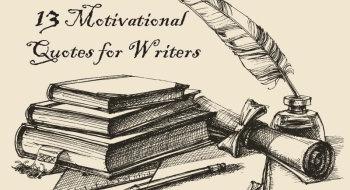7 ISBN Facts That Self-Published Authors Should Be Aware of

If you are self-publishing a book for the very first time, you would understandably not know what an ISBN is. An ISBN or International Standard Book Number is a numeric commercial book identifier.
It is meant to be as unique as possible and is predominantly used by publishers, booksellers, internet retailers. They are used for ordering, listing, and stock control purposes. When it comes to publishing a book by yourself, it is imperative that you know how to attain and use an ISBN.
Here are 7 ISBN facts that self-published authors should be aware of.
- ISBNs have a variety of functions
When you purchase an ISBN, it is important that you know what its main functions are. First things first, you should remember that ISBNs are assigned to text-based monographic publications. So if you are looking for a particular book, then the ISBN can help you identify it.
If you are planning on selling your book through brick-and-mortar bookshops and online retailers, then getting an ISBN is a must. The ISBN is used by bookshops and online retailers to ensure that orders are completed in the most effective and efficient way possible.
Libraries and book trade organizations also consider ISBNs very important, because it helps them organize their stock of books.
As a self-published author, having your own ISBN could also help you to evaluate the sales of your book. By using your ISBN, you could monitor your sales data, and analyze how successful your book marketing is.
It is worth noting that ISBN is only used for identification, and is not really used for legal or copyright protection. Although, there are some countries that have made ISBNs into a legal requirement.
- You can use an ISBN only once
If you are going to use an ISBN, you should make it count. You could only use an ISBN only once per book, and it could not be used again. So if you are going to publish one book in three different formats, then you should make sure that you buy three separate ISBNs as well.
- ISBNs consist of 13 digits
Originally ISBNs were made up of 10 digits, but ever since 2007, ISBNs have consisted of over 13 digits. These ISBNs are calculated using a specific mathematical formula.
- It has various parts
Before you purchase an ISBN, it is important that you know the various parts of the ISBN. Ever since 2007, most ISBNs have consisted of 5 elements. These elements are separated by spaces or hyphens. It is important to note that three or five of these elements could vary in length.
- Prefix Element
This is the very first part of the ISBN. They are over 3 digits in length and they are designated as either 978 or 979.
- Registration Group Element
This is the second part of the ISBN and has between 1 and 5 digits in length. It is predominantly used to identify the country or geographical region that is using the ISBN system.
- Registrant Element
The registrant element is comprised of over 7 digits in length. This part of the ISBN is used to identify the publisher or imprint that uses the ISBN system.
- Publication Element
The publication element of the ISBN consists of over 6 digits in length. Its main use is to identify if the book is of a particular edition and the format of a specific title.
- Check Digit
The check digit is always the final single digit of the ISBN. Its main role is to validate the rest of the number.
- ISBNs can come with or without a barcode
Although the ISBN can be used with or without a barcode, it is usually better than it comes with a barcode. The barcode is used to translate the actual number and allows it to be read via scanner. The barcode also provides additional information, such as the price of the book. This makes registering the sale of a book so much easier.
- It is better to get them in bulk
When you purchase your ISBN, it is best that you buy them in bulk. Remember that you could only use one ISBN per book format. So if you are planning to publish your book in hardcover, softcover, and eBook form, then you could stand to save more if you buy them in bulk.
- Using ISBNs are beneficial for self-published authors
Being a self-published author has its fair share of challenges. You should remember that publishing a book is a very multi-faceted process. You are not only expected to write the book but to publish it by yourself as well.
There is also the fact that some traditional bookstores don’t want to take chances on self-published authors. So from the start, self-published authors already have a lot of obstacles to overcome. So any advantage in the publishing process is very welcome to a self-published author.
Self-published authors don’t usually have a publishing company to get an ISBN for them. So you will have to purchase them yourself. This can be advantageous to you because you will have complete control over your book’s metadata.
The metadata is the description and categories that libraries, bookstores, and readers use to locate a particular book that they need. Nowadays, most people do their shopping online, and books are usually marketed online, with accompanying metadata to inform potential buyers. So if you are in charge of what you put on your metadata, then you could make it as enticing as possible. This will help your chances of selling your book in the long run.
Self-publishing a book for the very first time could be a bit tricky, and the concept of an ISBN might never have crossed your mind. However, if you want to publish your book properly, then an ISBN is a necessity. With this list of ISBN facts, you’ll know the significance of ISBNs to your publishing journey.
Become a Self-Published Author in 3 Simple Steps
Powered by Experts, Published by You. Reach 40,000+ Retailers & Libraries Around the World. Concierge Service. Tailored Packages. BBB Accredited Business. 100% Royalty Program.



